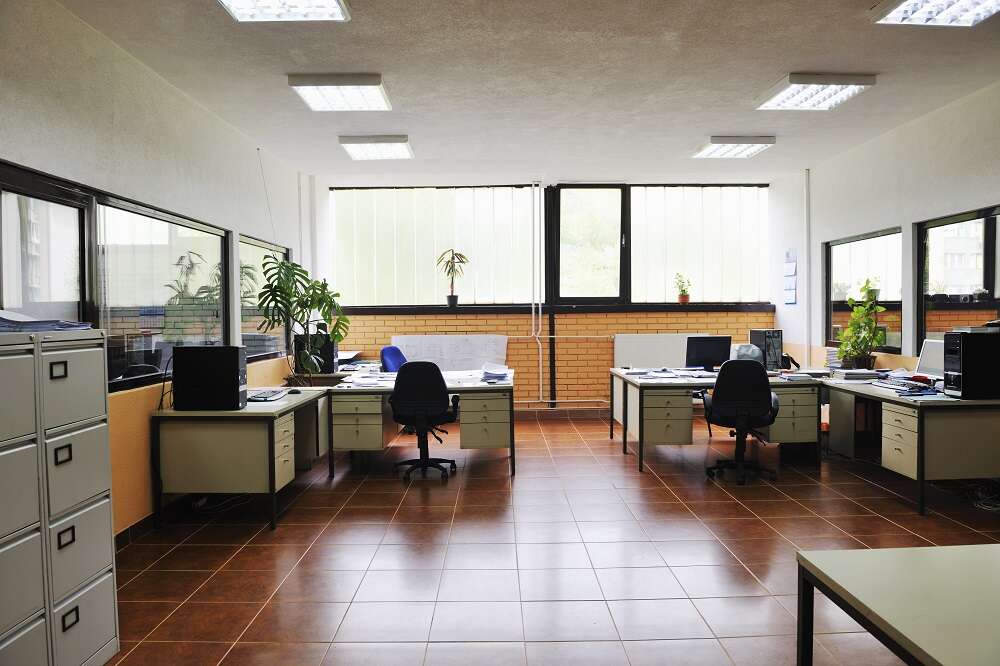- 68% of British office workers surveyed said they would be likely to consider working from the office full-time again if their commute was fully paid for
- Close to 6 in 10 (59%) office workers would welcome a four-day week, ranking it the top incentive that would tempt them back to the office
- Wednesday tops the list as most popular day to work from the office, if given the choice (66%)
Thursday 28th April 2022, London – Emburse, a global leader in spend management solutions, announces the findings of its latest YouGov survey of British office workers, aiming to unpick some of the popular issues facing the future of work. A survey of 1,000 British employees, of which 724 worked in an office, were asked questions around their new working preferences in order to understand what the future of work looks like.
As employers continue to navigate new expectations around working conditions, the data reveals some interesting perspectives around career prospects for remote workers, and highlights some of the top incentives that could tempt workers back to the workplace full-time.
Key findings:
Commute costs deterring workers from returning to the office full-time
Base: 724 office workers
- Over two-thirds of UK office workers (68%) said that they would be likely to consider going into the office full time if transport costs to the office were fully covered
- More than a quarter (27%) wouldn’t consider coming back into the office full time, even if costs were covered. This is still a high percentage of UK employees preferring to work from home
- There’s a distinct divide between all age groups; with 35-44 age bracket most tempted by a fully paid commute to the office 72% and the least being respondents aged 55+ (67%)
The top incentives that would lure workers back to the office full time:
Base: 724 office workers
- Four-day week (same number of work hours over four days, with a three-day weekend): 59%
- Fully-paid commute: 52%
- More paid holidays: 51%
- Employer-paid lunch in the office: 30%
- Younger workers (under 35s) are far more tempted by free lunch (48%) than the 55+ bracket (17%)
- Receive reimbursement for lunch expenses: 24%
- Under 35s are five times more likely (40%) than those ages 55+ (10%) to be swayed by the opportunity to expense their lunch
- Paid childcare on work days: 14%
- Paid childcare speaks to the 35-44 age group unsurprisingly, with (34%) saying this would make them consider returning to the workplace full time, significantly more than other age groups (23% for under 35s and 8% for 45-54s)
Hump day: British office workers choose Wednesday when asked to select which days they would be willing to work from the office
Base: 724 office workers
- Monday: 32%
- Tuesday: 62%
- Wednesday: 66%
- Thursday: 51%
- Friday: 12%
Interestingly, Friday ranked lowest (one in 10), indicating perhaps that ‘Friday work drinks’ is a thing of the past.
Additional findings:
Proximity bias not a concern for most, but a quarter of employees worry about career prospects
Base: 1000 (all employees)
- Almost a quarter (24%) of all surveyed said they be worried their boss would overlook their career development if they weren’t in the office
- Where visibility is traditionally the best way to climb the career ladder, there has been speculation around whether reduced presence in the office equals less chance of a promotion for some employees
Paid commute additional datapoints:
Of those who answered the question (sample: 724)
- Age demographic comments:
- The squeezed middle: 35-44 age bracket most tempted by a fully paid for commute to the office (72%)
- The 55+ cohort is least tempted by an employer-paid commute to the office (67%). It seems they would still prefer to work remotely
Kenny Eon, GM and SVP EMEA at Emburse, commented:
“The impacts of COVID and the Great Resignation mean that companies need to be more employee-centric in their approach, and humanising the workplace has never been more important. Part of this means ensuring team members get the best possible work environment. Whilst working remotely is certainly convenient for employees, there are clear benefits of having in-person interactions, as well as the cultural importance of bringing teams together. Data clearly shows that they are more productive than audio or video meetings, so there needs to be a balance between convenience and productivity. A relatively small investment from employers could have a significant impact in driving more in-office collaboration.
He added: “Given the sharp increase in the cost of living, businesses should consider how they can support staff by reducing the financial burden of attending the office in-person. Reimbursing travel and lunches can certainly help do this. It also doesn’t have to mean endless time on paperwork, as expense apps can make the process easy for both the employee and the finance team.”
